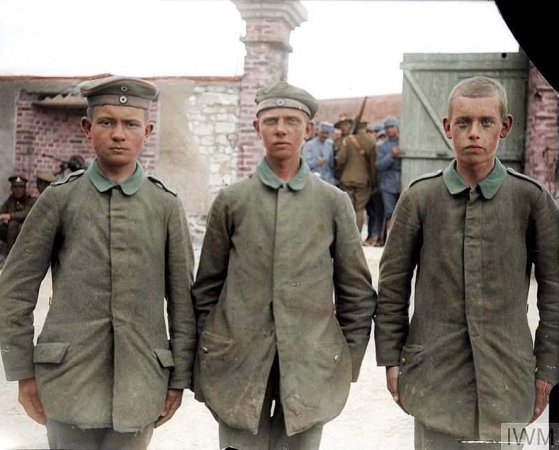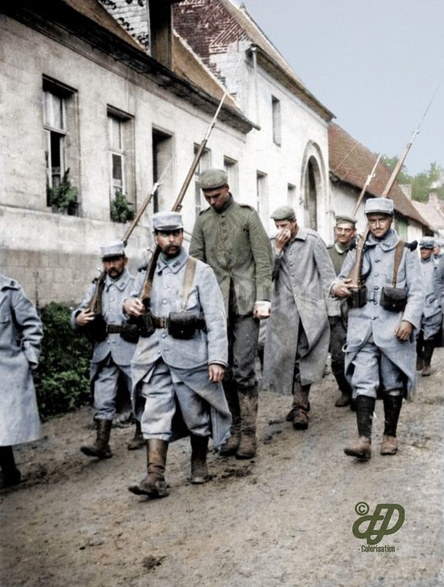Immediately after the war General Pershing put the boys in the Army Intelligence Section to work compiling hundreds of pages worth of information concerning what the German Army thought of their American counterparts. It was concluded that, by enlarge, the Germans were afraid of the Doughboys - seeing them as recklessly brave, and unpredictably aggressive - provided with all the food they could want and kitted out with sensible and efficient equipment, the Germans begrudgingly learned not to underestimate their pugnacious enemies from across the sea.
However, the Germans learned just as quickly not to overestimate the American soldier when he was a prisoner of war: the Doughboys were believed to have been defiant, ill-mannered, cheeky and when required to work or salute German officers they would simply refuse.
The report was declassified in 1990.
Click here to read an article about the sexually-transmitted diseases among the American Army of W.W. I...
This piece reminds me of what my son's history teacher so wisely passed on to them one day in sixth grade: "History can be found anywhere". How right she was, and in this case, a seldom remembered but perhaps widely practiced method of escorting German prisoners to the rear was rendered by a cartoonist in a 1921 magazine advertisement for a firm that manufactured men's accessories [underwear]:
"Remember that big attack? You couldn't spare a whole squad to escort your prisoners back to the cages; you needed every man in front. You got around the difficulty by cutting off the Boches' trousers. That made them helpless. They couldn't run and they couldn't fight. You parked the skipper's dog robber on their flank with a warped rifle and ran'em back."
Click here to read an article about the American POW experience during the Korean War. This small notice appeared in The Stars & Stripes at the very end of the war and described how German Prisoners of War, while in the care of the American Army, would be clothed.
After the Armistice a minority of German prisoners would remain in U.S. hands to dig the graves of American soldiers and Marines.

 |